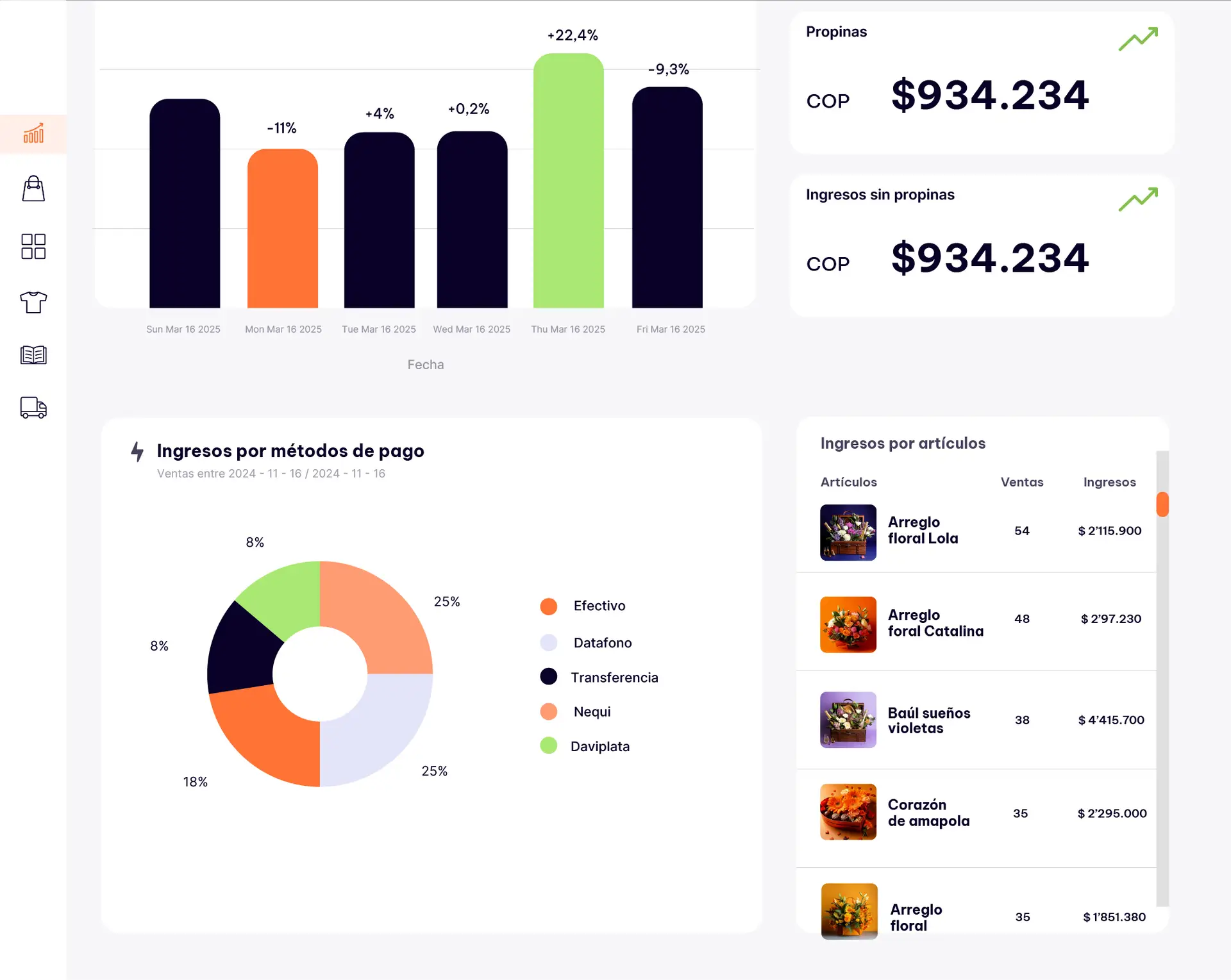Introduction: The Hidden Cost of Commission-Only Motivation
Picture this: It’s Monday morning, and you walk into your retail store to find your best salesperson looking defeated. Despite earning decent commissions last month, they seem disengaged, going through the motions rather than connecting with customers. Sound familiar? You’re not alone in this struggle.
As a retail business owner, you’ve likely discovered that motivation isn’t as simple as offering higher commissions or bonuses. While financial incentives certainly matter, they’re just one piece of a much larger puzzle. The truth is, today’s retail employees—especially the younger generation—are seeking something deeper than just monetary rewards. They want purpose, growth, recognition, and a sense of belonging that goes far beyond their paycheck.
The retail landscape has evolved dramatically in recent years. With the rise of e-commerce, changing consumer behaviors, and increased competition, your success depends more than ever on having a motivated, engaged team that genuinely cares about your customers’ experience. When your staff feels valued, empowered, and connected to your business’s mission, they don’t just sell products—they become brand ambassadors who create memorable experiences that keep customers coming back.
But here’s the challenge: traditional motivation strategies often fall short. Commission-based systems can create unhealthy competition among team members, leading to a toxic work environment where collaboration suffers. Employees might focus solely on high-ticket items while neglecting customer service fundamentals. Worse yet, when sales are slow, morale plummets, creating a downward spiral that affects everyone.
The most successful retail businesses understand that sustainable motivation comes from creating an environment where employees feel genuinely valued, challenged, and connected to something meaningful. This approach doesn’t just improve job satisfaction—it directly impacts your bottom line through increased sales, reduced turnover, improved customer loyalty, and enhanced brand reputation.
1. Recognition and Appreciation: The Foundation of Lasting Motivation
Recognition is one of the most powerful yet underutilized tools in retail management. While a commission check acknowledges results, genuine recognition celebrates the person behind those results, creating an emotional connection that money alone cannot achieve.
The Psychology of Recognition
Human beings have a fundamental need to feel valued and appreciated. When employees receive meaningful recognition, their brains release dopamine and oxytocin—chemicals associated with pleasure and bonding. This neurological response creates positive associations with work, leading to increased engagement and loyalty. The key is understanding that recognition must be timely, specific, and authentic to be effective.
Creating a Recognition-Rich Environment
Start by implementing multiple recognition channels. Daily huddles provide opportunities for peer-to-peer recognition, where team members can acknowledge each other’s contributions. Weekly team meetings can feature “spotlight stories” where you highlight specific examples of exceptional customer service or teamwork. Monthly celebrations can recognize broader achievements and milestones.
Consider creating a “Wall of Fame” or digital display showcasing customer compliments, before-and-after photos of successful styling sessions, or team achievements. Social media recognition not only celebrates your employees but also showcases your positive workplace culture to potential customers and future hires.
Personalizing Recognition
Different people respond to different types of recognition. Some employees thrive on public acknowledgment, while others prefer private appreciation. Some value written recognition they can keep, while others prefer verbal praise. Take time to understand each team member’s preferences and adapt your approach accordingly.
Practical Exercise: Create a recognition calendar for the next month. Plan to recognize at least one team member each day for something specific—whether it’s exceptional customer service, helping a colleague, creative problem-solving, or going above and beyond. Notice how this consistent recognition affects team morale and performance.
2. Professional Development: Investing in Your Team’s Future
Professional development is perhaps the most powerful long-term motivator you can offer your retail staff. When employees see that you’re invested in their growth, they become more committed to your business’s success. This investment pays dividends through improved performance, reduced turnover, and the development of internal talent for leadership positions.
Skills Development Programs
Create structured learning opportunities that go beyond basic product knowledge. Develop programs focused on customer psychology, visual merchandising, conflict resolution, and sales techniques. Consider partnering with local community colleges or online learning platforms to offer courses that employees can complete during slower periods.
Implement a mentorship program where experienced staff members guide newer employees. This not only accelerates learning but also creates leadership development opportunities for your seasoned team members. Cross-training programs ensure that employees develop diverse skills while making your operation more flexible and resilient.
Career Pathing and Advancement
Even in small retail operations, you can create advancement opportunities. Develop clear paths for progression, whether it’s from sales associate to senior associate, from team member to shift leader, or from floor staff to assistant manager. Document the skills, experience, and achievements required for each level, giving employees concrete goals to work toward.
Consider creating specialized roles that align with individual strengths and interests. Perhaps one employee excels at visual merchandising and could become your lead visual coordinator. Another might have strong social media skills and could manage your online presence. These specialized positions provide advancement opportunities while leveraging individual talents.
Learning Culture Development
Foster an environment where learning is celebrated and mistakes are viewed as growth opportunities. Encourage employees to attend industry workshops, trade shows, or networking events. Create a library of industry books, magazines, and resources that staff can access. Share insights from your own learning experiences and demonstrate that growth is an ongoing process for everyone.
Practical Exercise: Conduct individual development conversations with each team member. Ask about their career goals, interests, and areas where they’d like to grow. Create a simple development plan for each person, including specific learning opportunities, target skills, and timeline for growth. Review and update these plans quarterly.
3. Autonomy and Empowerment: Trusting Your Team to Excel
Micromanagement kills motivation faster than almost anything else. When you empower your team with autonomy and decision-making authority, you demonstrate trust while enabling them to take ownership of their work and customer relationships.
Empowering Customer Service Decisions
Give your team the authority to resolve customer issues without constantly seeking approval. Establish clear guidelines and spending limits for customer service decisions, then trust your employees to use their judgment. When a customer has a complaint, your staff should be able to offer solutions immediately rather than saying, “Let me check with my manager.”
This empowerment not only improves customer satisfaction but also makes your employees feel more confident and capable. They become problem-solvers rather than order-takers, which significantly increases job satisfaction and engagement.
Flexible Work Arrangements
While retail businesses require coverage during operating hours, you can still offer flexibility where possible. Allow employees to swap shifts with approval, provide advance notice of scheduling preferences, and consider flexible break times. Some employees might prefer to work longer shifts fewer days per week, while others might want consistent part-time hours.
Creative Input and Innovation
Encourage your team to contribute ideas for improving operations, customer experience, or sales strategies. Create regular brainstorming sessions where everyone’s input is valued. When employees see their suggestions implemented, they feel more invested in the business’s success.
Consider giving employees ownership of specific areas or projects. One person might take charge of window displays, another might manage inventory organization, and someone else might lead customer loyalty program initiatives. This ownership creates pride and accountability while developing leadership skills.
Practical Exercise: Identify three areas where you can give your team more autonomy this week. Perhaps it’s handling returns up to a certain amount, choosing music for the store, or determining break schedules. Implement these changes and observe how increased autonomy affects employee engagement and performance.
4. Creating Meaningful Work: Connecting Daily Tasks to Bigger Purpose
People are motivated by feeling that their work matters. In retail, this means helping employees understand how their daily activities contribute to customer satisfaction, business success, and their own personal growth.
Mission and Values Alignment
Clearly communicate your business’s mission and values, then help employees see how their individual contributions support these larger goals. If your mission is to help customers feel confident and beautiful, show how greeting customers warmly, offering styling advice, and maintaining an organized store all contribute to this mission.
Share customer success stories and positive feedback regularly. When a customer writes a positive review or returns to make another purchase, make sure your team knows about it. These stories help employees see the real impact of their work beyond just sales numbers.
Community Connection
Help your team understand their role in the broader community. Whether you’re supporting local charities, participating in community events, or simply serving as a gathering place for customers, emphasize how your business contributes to the community’s well-being.
Consider implementing community service projects or charity partnerships that your team can participate in. This not only creates team bonding opportunities but also connects work to broader social purpose.
Personal Growth Through Work
Help employees identify the transferable skills they’re developing through their retail experience. Customer service skills, problem-solving abilities, communication techniques, and sales experience are valuable in many career paths. When employees see how their current role is building skills for their future, they’re more likely to stay engaged and motivated.
Practical Exercise: Create a “Why We Matter” board in your employee break area. Include customer testimonials, community impact stories, and examples of how each team member’s work contributes to the business’s success. Update this board regularly with new stories and achievements.
5. Team Building and Workplace Culture: Creating Belonging and Connection
A positive workplace culture is the foundation that supports all other motivation strategies. When employees feel connected to each other and to the business, they’re more likely to stay engaged, perform well, and provide exceptional customer service.
Building Strong Relationships
Invest time in helping your team members get to know each other beyond work. Organize team-building activities, whether it’s monthly team lunches, after-work social events, or volunteer activities. These connections create a support system that makes work more enjoyable and helps employees feel valued as individuals.
Encourage collaboration rather than competition. Create team goals alongside individual objectives, and celebrate collective achievements. When employees see themselves as part of a team rather than individual competitors, they’re more likely to help each other succeed.
Communication and Feedback Culture
Establish regular communication channels that go beyond day-to-day operations. Hold weekly team meetings where everyone can share ideas, concerns, and successes. Implement an open-door policy where employees feel comfortable approaching you with suggestions or issues.
Provide regular feedback that focuses on both achievements and areas for improvement. Make feedback conversations two-way discussions where employees can share their perspectives and ideas. This approach builds trust and demonstrates that you value their input.
Celebrating Success Together
Create traditions around celebrating achievements, whether it’s reaching sales goals, receiving positive customer feedback, or achieving personal milestones. These celebrations don’t have to be expensive—sometimes a team lunch, a small gift, or simply public recognition is enough to make employees feel valued.
Work-Life Balance
Respect your employees’ lives outside of work. Avoid scheduling conflicts with important personal events when possible, and be understanding when life circumstances require flexibility. When employees feel that you respect their personal time and commitments, they’re more likely to be fully present and engaged during work hours.
Practical Exercise: Plan a team-building activity for next month that allows your employees to connect outside of the normal work environment. It could be as simple as a team lunch, a volunteer activity, or a fun group outing. Focus on activities that encourage conversation and relationship-building rather than competitive elements.
Final Reflection: Building Sustainable Motivation That Transforms Your Business
As we’ve explored throughout this article, true motivation in retail goes far beyond commission structures and financial incentives. It’s about creating an environment where people feel valued, empowered, and connected to something meaningful. When you invest in recognition, development, autonomy, purpose, and culture, you’re not just motivating employees—you’re building a sustainable competitive advantage.
The transformation won’t happen overnight, but the results will be worth the effort. Motivated employees provide better customer service, leading to increased sales and customer loyalty. They’re more likely to stay with your business, reducing turnover costs and maintaining consistency in customer relationships. They become brand ambassadors who attract both customers and quality job candidates through their positive experiences.
Remember, motivation is not a one-size-fits-all solution. Each member of your team is unique, with different needs, goals, and preferences. Take time to understand what drives each individual, and be willing to adapt your approach accordingly. Some employees might be motivated primarily by growth opportunities, while others value recognition or flexible scheduling. The key is showing that you care enough to understand and respond to these individual differences.
Start small but start today. Choose one or two strategies from this article and implement them consistently. Perhaps you’ll begin with daily recognition or weekly development conversations. As these practices become natural parts of your routine, gradually add other elements. The compound effect of these efforts will surprise you with its power to transform your workplace culture and business results.
Most importantly, remember that authentic motivation comes from authentic leadership. Your employees will respond to genuine care and investment in their success. When you demonstrate through your actions that you value them as individuals and are committed to their growth, they’ll reciprocate with engagement, loyalty, and exceptional performance.
The retail industry is challenging, but it’s also incredibly rewarding when you have a motivated team working alongside you. By moving beyond commission-only motivation and embracing these holistic approaches, you’re not just building a better business—you’re creating opportunities for people to grow, succeed, and find meaning in their work. That’s a legacy worth building.
Your customers will feel the difference, your employees will appreciate the environment you’ve created, and your business will thrive in ways that go far beyond what commissions alone could ever achieve.





